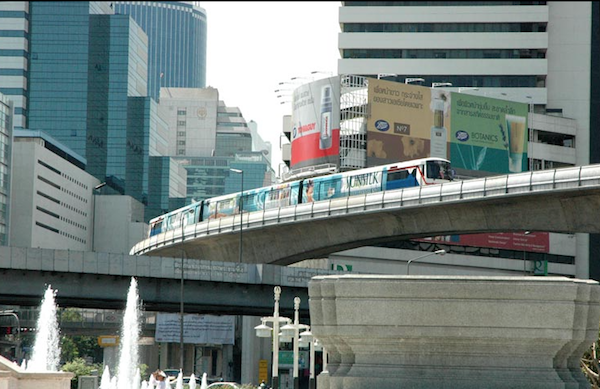After months of political unrest and facing a sluggish economy, the Kingdom’s property market has shown signs of a slow recovery, with several foreign companies flocking to Thailand to form joint ventures.
Thai English-language newspaper The Nation reported this week that real estate investors from China, Hong Kong, Singapore, Japan and even Israel have injected money or assets into Thailand to develop residential and commercial buildings.
Among the local developers that established these strategic ventures include Charn Issara Development, which, along with investors from Mainland China and Hong Kong, is building a mixed-use project in Phang Nga province called the Baba Beach Club, valued at THB3 billion (USD91.35 million).
Another high-profile collaboration is Major Development’s THB100 million (USD3.05 million) joint venture with Danya Cebus, a top construction company based in Israel, and CRG Global Investment from Hong Kong.
Japanese and Singaporean funds are also in advanced negotiations to form a venture with a local developer in a deal that is expected to conclude in the first quarter of 2015.
According to Surachet Kongcheep, a senior manager at Colliers International Thailand, the local market is appealing to foreign investors who see that geographic advantage of the country as a central hub especially when the ASEAN Economic Community comes into effect in the coming year.
“When land prices and construction costs in Thailand’s property market are compared with those of other countries in the region, Thai prices are still lower, which challenges foreign investors to expand their investment in our property market,” Surachet told The Nation.
Meanwhile, some local companies of late continue to form joint ventures as well, such as the 50:50 partnership that developer Sansiri PCL signed with Skytrain operator BTS Group Holdings last October. The two groups agreed to collaborate on residential projects for sale within the 500-metre radius of the BTS, the first of which is the 900-unit project at the Mo Chit station, due to be completed in 2016.
Demand for Thai real estate is projected to increase by 5-10 percent in the last quarter of this year as top developers intend to launch new products, The Bangkok Post reported last weekend.
Half of the ongoing projects are located neat mass transit systems, such as the BTS and MRT lines, where demand and prices are higher. Tentatively some 60,000 condominium units are slated for completion before the year closes, but that could change depending on construction delays due to lack of workers.
Skytrain by Gcom was used under a Creative Commons licence.
Source: www.property-report.com

